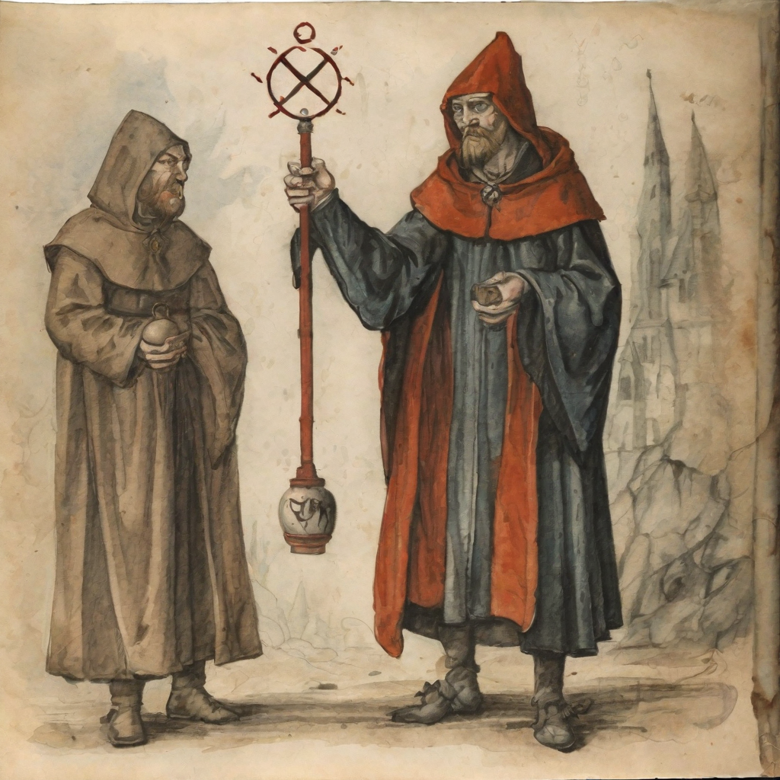
Cornelius Agrippa (1486-1535) was a renowned German occultist, theologian, and writer, known for his influential work titled "Three Books of Occult Philosophy" (De Occulta Philosophia Libri Tres). This comprehensive work, published in 1531, explores various aspects of magic, the occult, and the relationship between the natural and supernatural worlds.
Agrippa's "Three Books of Occult Philosophy" is divided into three sections, each addressing different areas of occult knowledge and practice:
The First Book:The first book provides a theoretical foundation for the study of magic and the occult. Agrippa discusses the principles of natural magic, astrology, and the influence of the celestial bodies on human affairs. He delves into the classification of spirits, the nature of angels and demons, and their interaction with the material world. Agrippa also explores the importance of rituals, ceremonies, and the use of symbols in magical practices.
The Second Book:The second book focuses on the practical aspects of magic and the occult. Agrippa provides instructions and techniques for various magical operations, such as divination, invocation of spirits, and the creation of talismans and amulets. He explores the properties of herbs, stones, and animals in relation to their magical and medicinal uses. Agrippa also discusses the significance of planetary hours and the construction of astrological charts for magical purposes.
The Third Book:The third book expands on the topics covered in the previous sections, delving into more complex and esoteric aspects of occult philosophy. Agrippa explores the mystical aspects of the Kabbalah, the significance of numerology, and the hidden meanings within religious texts. He discusses the power of divine names, theurgy (the practice of invoking divine powers), and the pursuit of spiritual purification and transformation.
Agrippa's "Three Books of Occult Philosophy" draws upon various sources, including ancient and medieval texts, such as the works of Hermes Trismegistus, Jewish mysticism, and classical philosophy. It sought to integrate and synthesize different strands of occult knowledge, providing a comprehensive framework for understanding and practicing magic and the occult arts.
Comments
Post a Comment